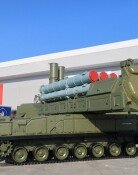Underground Economy Estimated to Constitute 14 Percent of GNP
Underground Economy Estimated to Constitute 14 Percent of GNP
Posted February. 01, 2002 09:43,
The underground economy of Korea in 1995 is estimated to be 52 trillion won, equal to 14.3 percent of the GNP.
Such high percentage of the underground economy means higher percentage of tax evaders and increased burden on honest taxpayers, consequently exacerbating the imbalance in income between the two groups. In addition, tax evasion by high income class turns into the financial deficit of the National Pension Funds or Health Insurance Share.
Two KDI researchers Nho Ki-Seung and Kim Dong-Joon released such data yesterday in their report on "Estimation of the Underground Economy and Countermeasures."
The two researchers estimated the amount of the underground economy deduced from the amount that evaded the value added tax; 5 trillion 376.5 billion won (14.9 percent of GNP) in 1980, 15 trillion 31.7 billion (19.2 percent) in 1985, and 23 trillion 746.7 billion won (13.9 percent) in 1990.
Mr. Nho said, "The volume of the underground economy estimated through the value added tax is much less than the real volume of the underground economy. So, the volume of the underground economy may turn out to be much larger if another method is applied." Prof. Ahn Jong-Beom also pointed out that "Tax evasion might have risen by the introduction of the simplified taxation system for value added tax in 1996. The underground economy may still be growing as of now."
The estimated amount of the underground economy deduced by the cash demand function reached up to 115 trillion won (26.1 percent of GNP) in 1998. Another estimation made by Lee In-Pyo and Chung Young-Hyun of the Korea Institute of Public Finance revealed that the volume of the underground economy was 16.3-25.7 percent (83 trillion won) during 1993-1994 by using the national accounts methods.
Foreign economic experts estimated the volume of the Korean underground economy as high as 38-50 percent of the GNP during 1993-1994.
Prof. Choi Kwang (Hankuk University of Foreign Studies) emphasized that "Taxation must be applied more strictly since the underground economy distorts the income distribution and dampens the will to work, and eventually affect economic growth negatively."
Mr. Hyun Jin-Gwon, a researcher of the Korea Institute of Public Finance, also remarked that "The simplified tax system that encourages tax evasion must be abolished and tax evasion should be blocked systematically by expanding the use of credit card."
Chan-Sun Hong hcs@donga.com
Headline News
- Ukraine says N. Korea’s first troops arrive in Kursk
- N. Korea begins installing barriers on Donghae Line after 'bombing show'
- K-defense operating profit expected to jump by 200% in Q3
- Seoul City launches DDP rooftop tours, celebrating 10th anniversary
- Ahn Jung-geun’s historic writings return to Korea in 15 years







